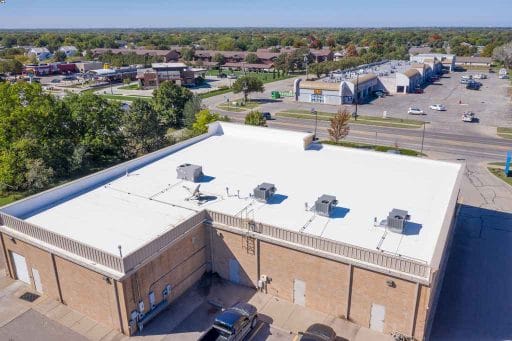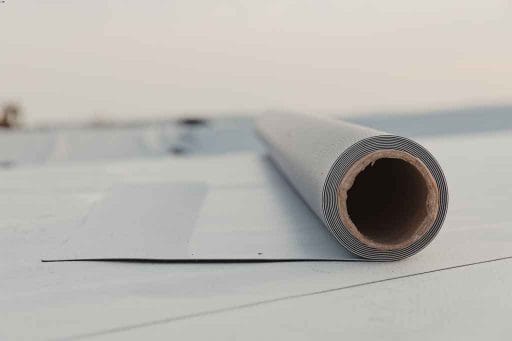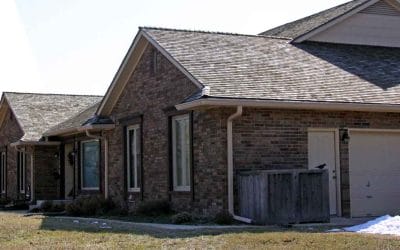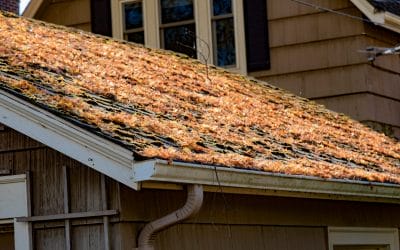When it comes to the roofing of your Wichita commercial property, there are many options to consider for your roofing material. But how can you tell which one is the best for your situation? To help you make an informed decision, let’s discuss PVC and TPO, two of the most popular types of single-ply membrane roofing. Each material has its own sets of pros and cons, which we will go over below, and traits that each material possesses and the weaknesses that you will want to know about.

TPO
TPO, Thermoplastic Polyolefin, is made up of a single layer of synthetics, usually a blend of polypropylene and ethylene-propylene rubber. Its primary advantage is that it’s typically the lowest material cost for single-ply membrane roofs. It typically comes in white on top, which can help reflect the sun’s light and stop heat buildup within the building.
TPO can be attached with adhesives, fastened directly to the roof deck, or even heat welded in places around chimneys and other protrusions. It resists corrosion, mildew, and algae growth, and does not require pressure washing, making it even easier to care for during the annual checkup.
Pros
TPO provides outstanding resistance to ozone, ultraviolet rays, and some chemical exposure at a low cost. It reflects heat radiation better than PVC and resists mold growth, dirt accumulation, tears impacts, and punctures.
Cons
Heat welding the seams requires a very high-quality installation to hold up over time. Some formulations of TPO may not last much past the 10-year mark, and newer technology makes for a lack of a proven track record.

PVC
PVC, polyvinyl chloride, is made from a lower percentage of oil and petroleum than TPO. Energy-efficient and surprisingly strong, it can be installed by heat welding the seams, as opposed to adhesive or utilizing a taped seam. This installation method allows a PVC roof to expand and contract with a building. PVC can also be sealed with solvent welding and attached to metal flashing and other components with adhesives.
Pros
PVC is highly efficient with heating and cooling, reflects the sun and mitigates the heat island effect in cities, and is recyclable, even after over twenty years of service life. Some commercial buildings will have significant amounts of exposure to chemicals. PVC roofs also do not support combustion, burn slowly, are difficult to ignite, and even extinguish the fire if the source is removed.
Cons
These features all come at a cost that is typically higher per square foot cost than TPO. PVC typically doesn’t perform as well in cold climates, becoming brittle and cracking or shattering if walked on. In addition, you will need to completely remove your old roof before moving forward in the case of a re-roofing job. This also adds more cost to the job as it can be very labor-intensive to remove the old roof.
At Rhoden Roofing, we have years of experience in commercial roofing that will ensure you the job is done as intended the first time. If you’re ready to see what your roofing solutions can look like, schedule an estimate with us today.



